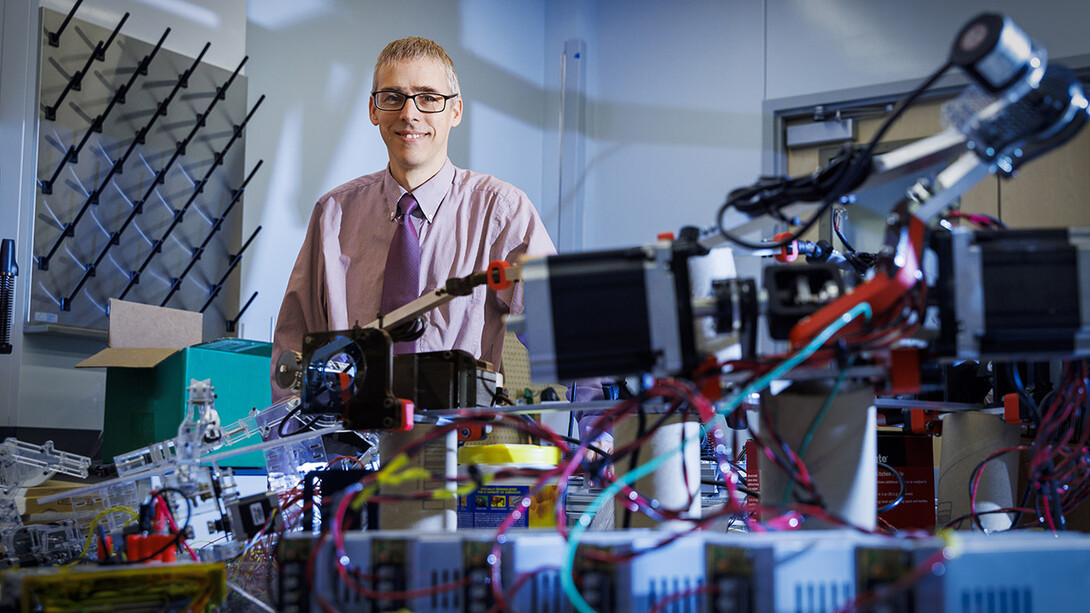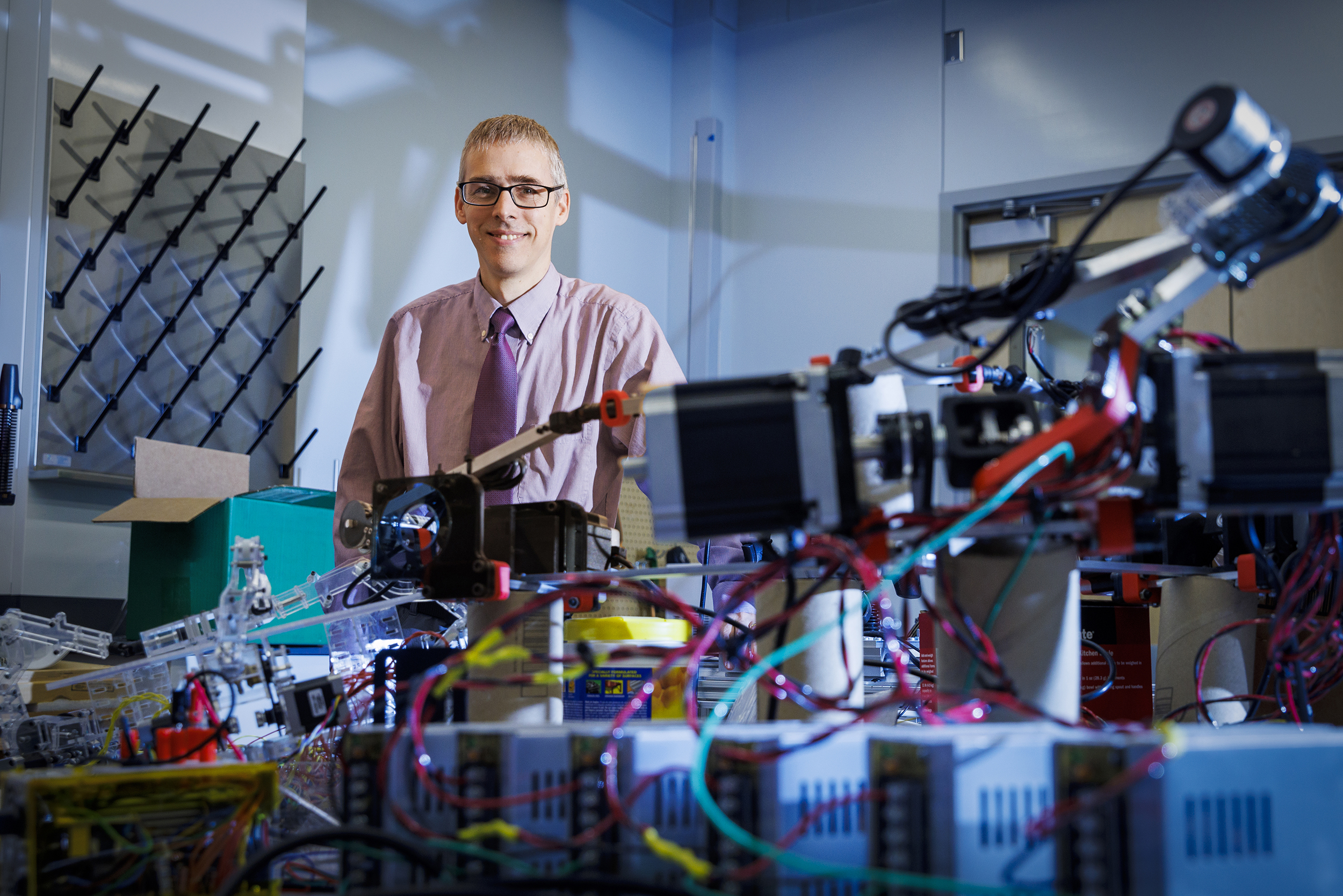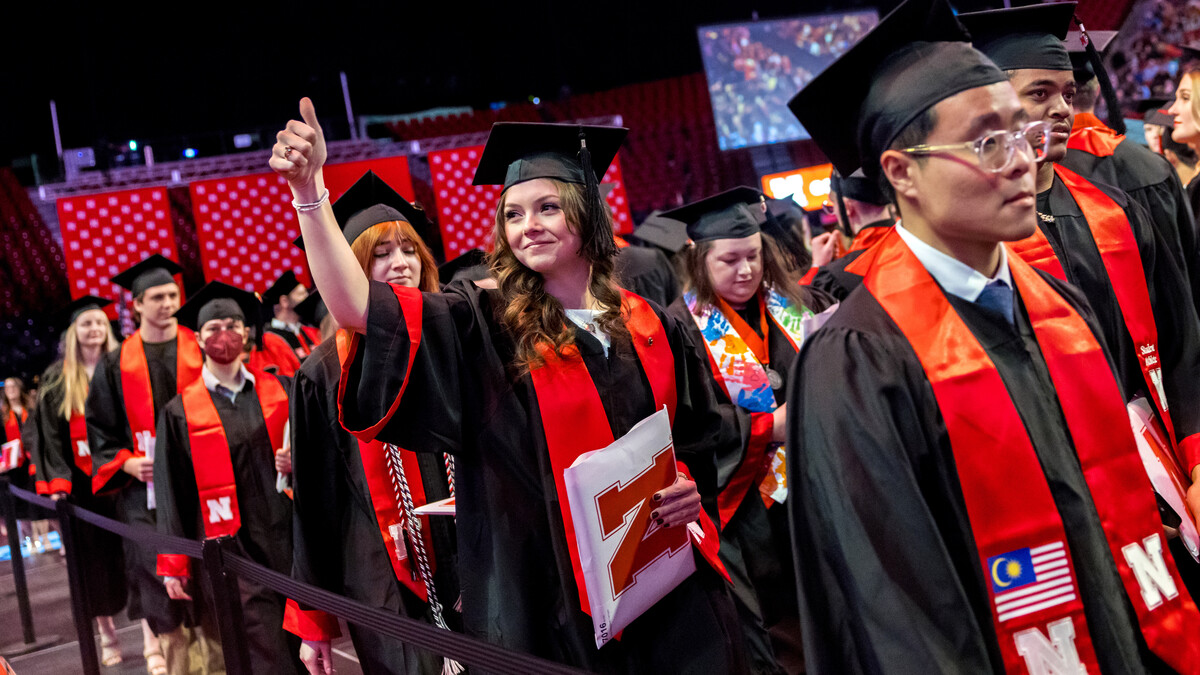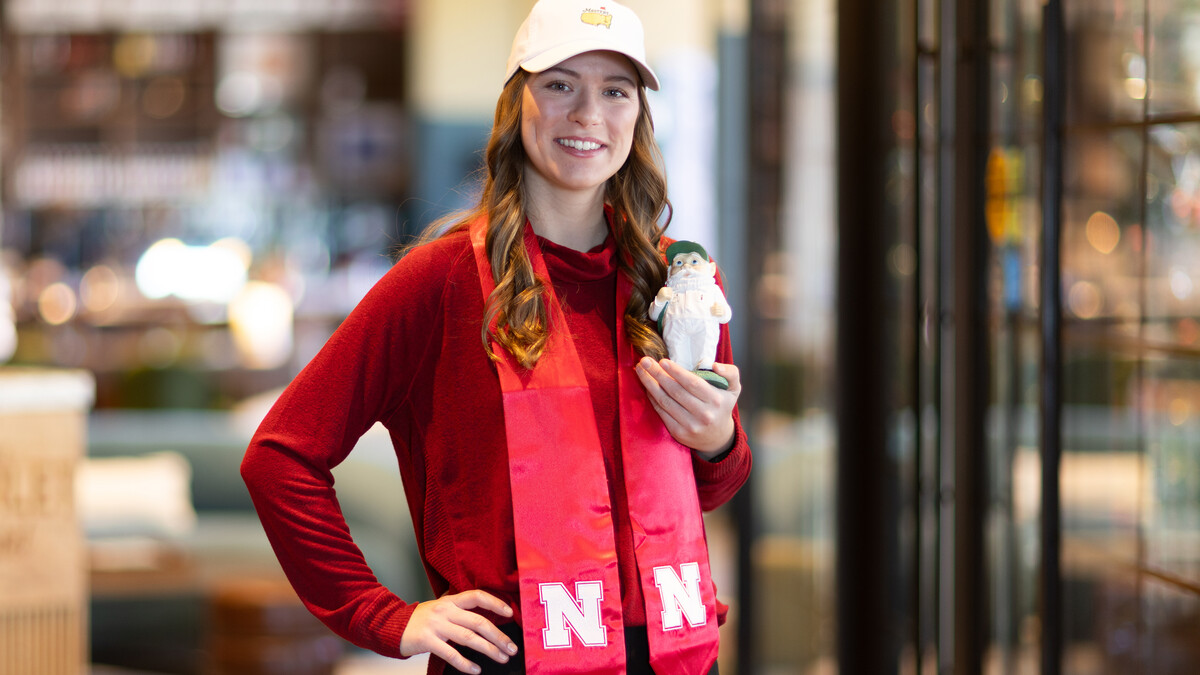
Carl Nelson, finishing up his doctorate in mechanical engineering in 2005, was just looking for a job when a colleague suggested biomedical applications as a field ripe for a bright young engineer looking to move beyond the theoretical to applied research.
Some 17 years later, Nelson’s work at the University of Nebraska–Lincoln in this area has earned him election as a senior member of the National Academy of Inventors.
NAI’s Senior Member program recognizes early-stage innovators and inventors whose success in patents, licensing and commercialization has the potential to positively impact society. Each member holds a U.S. patent that has been licensed or commercialized and/or five or more issued U.S. patents.
Nelson, professor of mechanical and materials engineering, has been at Nebraska since obtaining his doctorate from Purdue University.
“When I was finishing my Ph.D., I was thinking about how I was going to get employment,” he said. My Ph.D. work in robotics was relatively theoretical and not very applied. I had an opportunity to look in different areas where it could be more applied.”
A mentor said biomedical applications of robotics and mechanical systems were an area ripe for growth.
“That discussion resonated with me. The synergy was there, and the serendipity was there when I applied to Nebraska,” where collaborations between Husker scientists and doctors at the University of Nebraska Medical Center already were underway.
“I was lucky to fall into this prebuilt collaborative environment where I could work with surgeons and other health care professionals to immediately be introduced to areas of need … and I could bring engineering ideas to bear on those problems,” Nelson said.
In addition to that existing partnership with UNMC, Nelson reached out to Madonna Rehabilitation Hospitals in Lincoln.
“Those two collaborations have been the backbone of this medical engineering research for me over the past 15-plus years,” he said.
The results so far: 12 patents, five of them commercialized, in surgical robotics, primarily for performing minimally invasive surgery, and rehabilitation engineering.
Bob Wilhelm, vice chancellor for research and economic development, said Nelson’s NAI honor is well deserved.
“Carl has established himself as a cutting-edge researcher, innovator and entrepreneur whose work is truly transforming society,” Wilhelm said. “His work has created technologies now used clinically around the world to improve people’s lives. He’s also played a key role in building a culture of innovation at UNL, including mentoring and nurturing the next generations of inventors.”
One of Nelson’s two licensed technologies is the Intelligently Controlled Assistive Rehabilitation Elliptical training system. The ICARE system is a novel elliptical machine that helps people who have suffered a stroke, brain injury, multiple sclerosis or other conditions, regain the ability to walk.
The equipment is available in the United States, Canada, the United Kingdom, Australia and Peru. Its development is an excellent example of collaboration among engineers, doctors and private industry, Nelson said. The idea came from Judith M. Burnfield, director of Madonna’s Institute for Rehabilitation Science and Engineering and director of the Movement and Neurosciences Center. Nelson provided the engineering know-how, leveraging and expanding already existing technology from SportsArt Fitness, a leading manufacturer.
Before ICARE was launched, robotic gait devices were available but at a cost out of reach outside of specialized rehab hospitals.
Nelson’s other licensed technology is used in miniaturized surgical robotic technology, where a process for colon resection, a procedure done more than 400,000 times a year in the U.S., has been licensed to Virtual Incision Corp., a Husker startup.
Collaboration between engineers and health care professionals takes various forms, Nelson said.
“The best case is when someone just drops a problem in your lap and says ‘Can you help us solve this,’ and it’s even better when they say ‘and I have grant funding to pursue this,’” Nelson said. “It doesn’t always happen that way.”
More typically, progress comes from long discussions among engineers and doctors. “From the medical side, here’s my list of problems, and from the engineering side, here’s my list of resources and expertise, and how can we match one to the other.”
As for his future, Nelson notes that medical robotics is a crowded field these days, so he’s been looking “to broaden the space in which I’m digging for problems. So, now I’m looking at not only surgical applications or rehabilitation applications of robotics and mechanical systems, but also more general kinds of public health questions and problems.”
Workplace safety is one of those public health areas that seems primed for engineering solutions. Specifically, Nelson said, he is exploring the field of roofing construction, in which many injuries and deaths occur every year.
“It’s interesting to study these problems and wonder what role technology can play,” he said. “My focus is really on talking to the right people and letting them help me understand the problems so I can bring some engineering toolboxes to bear on those problems.
“I like inventing. I think it’s fun. It’s one of the most exciting parts of my job when I can get a little time carved out and think and strategize about tackling a problem in a new way.”
Nelson is the third Husker to receive the honor since NAI established the program in 2018. The others are Carrick Detweiler, Susan J. Rosowski Associate Professor of computer science and engineering, and George Burba, an adjunct faculty member in the School of Natural Resources.








